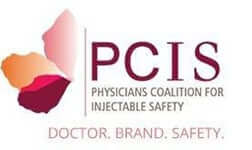What is a scar revision?
Scar revision refers to procedures aimed at reducing the appearance of scars to blend more naturally with surrounding skin tone and texture. Techniques can include topical treatments, minimally invasive laser scar revision, and surgical approaches, depending on the severity and type of the scar.
What is a scar revision surgery?
Scar revision surgery is a plastic surgery procedure designed to minimize a scar so it blends better with your surrounding skin. The surgeon carefully removes or adjusts scar tissue, repositions skin, and may close the incision with advanced suturing techniques to enhance cosmetic results and reduce visibility.
Is scar revision surgery worth it?
Scar revision surgery is generally worth it for patients who feel self-conscious or uncomfortable with the appearance of prominent or unsightly scars. It can significantly improve skin aesthetics, enhance self-esteem, and in some cases, relieve physical discomfort related to scar tissue.
How long to wait for scar revision?
It’s usually recommended to wait at least 6 to 12 months after the initial injury or surgery before considering scar revision. This waiting period allows the scar to fully mature, ensuring the best possible outcome from subsequent revision treatments.
What is the success rate of scar revision?
The success rate of scar revision is generally high, with many patients seeing substantial improvement in scar appearance. While complete elimination is not always possible, most scars can be significantly improved to become less noticeable, smoother, and better blended with surrounding skin.
Can dermatologists perform scar revision?
Dermatologists can perform certain types of scar revision procedures, especially non-invasive treatments like laser therapy or topical treatments. However, for more complex surgical revisions or facial scar removal, consulting experienced scar revision surgeons or plastic surgeons often yields the best results.
When should you get a scar revision?
Consider scar revision when your scar has fully healed and matured, typically 6 to 12 months after the initial injury or procedure. If your scar causes aesthetic dissatisfaction, discomfort, or impacts your self-confidence, scheduling a consultation with a qualified specialist is advisable.
What happens during scar revision?
During scar revision, your surgeon carefully removes excess scar tissue and strategically repositions or reconstructs the area. Depending on the scar type and location, the procedure may involve advanced suturing techniques, skin grafts, tissue rearrangement, or laser scar revision treatments to optimize the final appearance.
What not to do after scar revision?
After scar revision surgery, it’s crucial to avoid direct sun exposure, strenuous physical activities, and movements that could stress the incision area during initial healing, typically for several weeks. Smoking and consuming alcohol should also be avoided to ensure optimal healing and minimize complications.
What to expect from a scar revision?
After a scar revision procedure, expect temporary swelling, bruising, redness, and mild discomfort, typically subsiding within a few weeks. Initial healing usually takes a couple of weeks, but full maturation and optimal cosmetic results typically occur gradually over several months as the skin continues to heal and improve.
What is the most frequent approach to scar revision?
The most frequent approach to scar revision is surgical scar revision, often combined with laser treatments for enhanced results. This combination method effectively smooths and blends scars, particularly facial scars, providing noticeable improvement in skin texture and appearance.
How to prepare for scar revision surgery?
To prepare for scar revision surgery, avoid smoking, alcohol, and blood-thinning medications for at least two weeks prior to the procedure. Keep your skin clean and moisturized, avoid excessive sun exposure, and follow any pre-operative instructions provided by your surgeon to ensure optimal outcomes.
When is scar revision medically necessary?
Scar revision becomes medically necessary when a scar causes significant discomfort, restricts movement, or negatively impacts normal bodily function. In such cases, scar surgery treatment can greatly enhance the quality of life by relieving discomfort, restoring function, and improving overall well-being.








